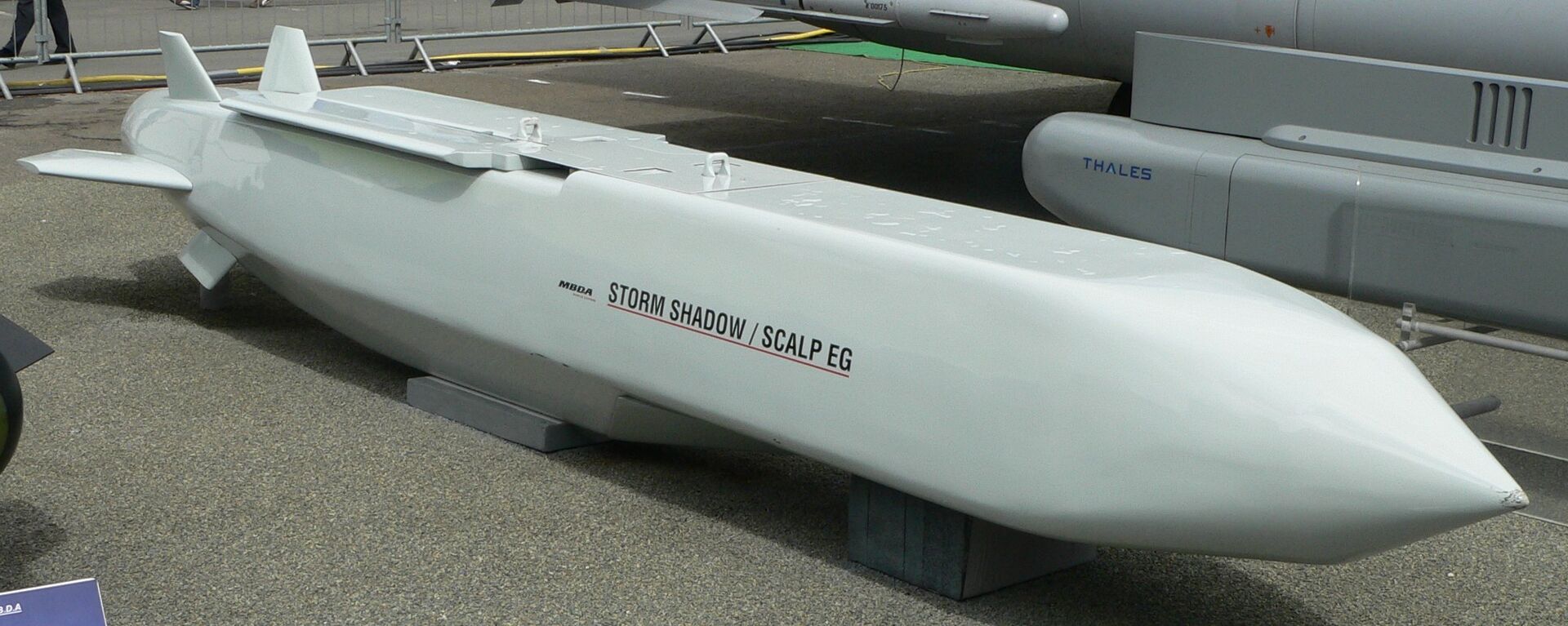https://sputnikglobe.com/20240125/what-weapons-will-west-supply-to-ukraine-in-2024-1116386809.html
What Weapons Will West Supply to Ukraine in 2024?
What Weapons Will West Supply to Ukraine in 2024?
Sputnik International
Ukraine is struggling to get new military aid from its Western allies having burnt through ammunition and weapons during its ill-fated counteroffensive.
2024-01-25T19:09+0000
2024-01-25T19:09+0000
2024-01-30T10:32+0000
europe
russia's special operation in ukraine
us arms for ukraine
pentagon
ramstein military base
ramstein
ukraine
storm shadow cruise missile
artillery
nato
https://cdn1.img.sputnikglobe.com/img/07e8/01/09/1116074217_0:156:3000:1844_1920x0_80_0_0_6ccbdf6960da8cfd4b7a72d3f16736a6.jpg
The 18th meeting of the Ukraine Defense Contact Group (UDCG), also known as Ramstein format, was held on January 23 amid growing concerns over the future of the US and EU's multi-billion aid packages for Kiev.Washington has yet to settle an internal dispute over the provision of $60 billion in aid for the Kiev regime, which some US think-tanks consider dead in the water. Across the Atlantic, the EU has failed to overcome internal divisions over providing a €50-billion package for Ukraine.The UDCG comprises over 50 countries, including all 31 NATO member states. But only a few participants have recently pledged more arms for Ukraine, in sharp contrast to the beginning of the conflict.GermanyBerlin has committed to send a new batch of weaponry which will particularly include 20 Marder infantry fighting vehicles (IFVs), 15 Gepard self-propelled anti-aircraft guns, 124 RQ-35 Heidrun reconnaissance unmanned aerial vehicles (UAVs), as well as trucks, personal armor, satellite communication terminals, six Sea King Mk41 anti-submarine warfare helicopters and other equipment. At the same time, Berlin has refused to hand over Taurus KEPD 350 cruise missiles to Ukraine, despite repeated demands from Kiev officials.German media report that Kiev is also expecting Germany to provide it with a fourth Iris-T surface-to-air missile battery by the end of the winter and four more anti-aircraft systems by the end of 2024.The new batch pales in comparison to earlier arms supplies from NATO. It is also unlikely to satiate Ukraine's appetite for arms and munutions, given that over the several months of its botched summer counteroffensive the nation's military forces lost 159,000 troops killed and wounded, 121 aircraft, 766 tanks, including 37 German Leopard 2s, 2,348 armored vehicles of various classes, including 50 Bradley infantry fighting vehicles, according to the Russian Ministry of Defense.Military aid to Ukraine is flagging as NATO's weapons stockpiles have been significantly depleted since the beginning of the conflict. NATO member states are now seeking to replenish their arms depots with Western defense contractors poised to cash on on new hefty orders. NATO announced on January 3 that it would help a coalition of Allies, including Germany, the Netherlands, Romania and Spain, to buy up to 1,000 Patriot missiles, claiming urgent security needs.FranceParis has pledged to send "hundreds" of Safran Armement Air-Sol Modulaire (AASM) Hammer guided bombs for the first time as well as additional 40 MBDA SCALP EG cruise missiles.Presently, France possesses around 1,800 AASM precision-guided munitions (PGM) and has vowed to provide 50 of those on a monthly base to Kiev. The munitions will be adapted for Ukraine's Soviet-era warplanes.In addition, the French government will provide 12 more Caesar self-propelled howitzers to Ukraine, according to French Armed Forces Minister Sébastien Lecornu. Lecornu specified last Thursday that Nexter Systems, a government-owned arms manufacturer, would produce a total of 78 Caesar howitzers over the coming year, expressing the hope that other NATO states would buy them as gifts for Ukraine. The minister added that France would also be able to deliver 3,000 shells of ammunition to Ukraine per month by the end of January. But that is a drop in the ocean compared to the 3,000 shells the Ukrainian army uses every day.The United KingdomIn mid-January, British Prime Minister Rishi Sunak stated that the UK will provide £2.5 billion ($3.2 billion) in military aid to Ukraine in 2024/25, an increase of £200 million ($254 million) on the previous two years.Per the UK government website, of the £2.5 billion package, at least £200 million will be spent on "a major push to rapidly procure and produce thousands of military drones for Ukraine, including surveillance, long-range strike and sea drones."It is also expected that London could provide Ukraine with Storm Shadow cruise missiles (also known as SCALP), air defense systems with ammunition, anti-tank weapons, artillery ammunition and maritime security systems. Turkiye has refused to allow two minesweeper ships donated to Ukraine to sail through the Turkish straits to the Black Sea.Russian military observers say the British air defense package may include more of the Stormer HVM (High Velocity Missile), a short-range air defense system, or the Sky Saber (Land Ceptor) air defense complex, which was adopted by the UK military forces in 2020. The Land Ceptor's standard modular version has a range of 25 kilometers; the CAMM-ER modification boasts a range of 45 km. The CAMM-MR, which is still under development, could hit the target at a distance of 100 kilometers.Given that Ukraine has turned into a waste disposal site for obsolete NATO weapons, military observers do not rule out that Ukraine will be supplied by the decommissioned Rapier air defense systems. The British Army received the system in 1972 and in 1974 it was adopted by the Royal Air Force. These low-level air defense systems have a speed of Mach 2+ and a range of just 7 km. Reportedly, the UK currently has a total of about 600 Rapier systems and 25,000 missiles for them. Needless to say, the obsolete low-level air defense systems would be no game changer on the battlefield.DenmarkLast year Denmark vowed to transfer 19 US-made F-16 fighter jets to Ukraine in early 2024, as it is replacing its F-16 fleet with more modern F-35 jets. However, Danish newspaper Berlingske reported on January 6 that their delivery to Kiev would be delayed by up to six months.NorwayNorway is modestly donating two F-16 fighter jets that will be used to train Ukrainian personnel in Denmark. In early January, Defence Minister Bjorn Arild Gram visited the airfield in Bodo where the aircraft was awaiting dispatch to Ukraine.The NetherlandsOn December 22, the Dutch government signaled that it would provide 18 F-16 fighter jets to Ukraine. Given that the warplanes are far from brand new they will need to undergo inspections and modifications.The Netherlands also specified that before the warplanes can be sent to the Ukrainian military, strict criteria must be met including licensing and infrastructure readiness in Ukraine. Military observers note the fact that almost all Ukrainian airfields have been destroyed by Russian strikes, throwing the deployment of NATO-grade aircraft in the Eastern European state into question.Last October, US Secretary of Defense Lloyd Austin suggested that Ukraine may receive F-16 aircraft from NATO allies as early as spring 2024.BelgiumBelgium, which is also participating in NATO's "air coalition" against Russia in Ukraine, has pledged to provide Ukraine with €611 million ($662 million) in military aid, Bloomberg reported on January 22, quoting Ukrainian Defense Minister Rustem Umerov. In October, Belgium agreed to provide Ukraine with F-16s but not before 2025. It's unclear what the balance of forces on the ground will be by that time.EstoniaIn December, Estonia pledged to send €80 million ($86.6 million) in military aid to Kiev. The nation, which has yet to overcome the consequences of record-high inflation rates in 2022 and looming pan-European recession, said it could allocate 0.25 percent of its gross domestic product (GDP) to military aid for Ukraine over the next four years.Estonia's previous packages included Javelin anti-tank missile systems, artillery ammunition, anti-tank mines, anti-tank mortars, machine guns, vehicles, communications equipment and other items.All the proposed military aid cannot help the Kiev regime win the conflict, instead it will make the NATO proxy war fester further at the expense of Ukrainian people.
https://sputnikglobe.com/20240124/oldie-but-no-goodie-west-disposes-of-obsolete-weapons-by-sending-them-to-ukraine--1116361015.html
https://sputnikglobe.com/20240124/ukraine-announces-plans-to-get-new-weapons-kiev-doesnt-have-yet-what-are-they-1116358395.html
https://sputnikglobe.com/20240125/pentagon-refused-to-send-a-10-warthogs-to-ukraine-amid-fears-theyd-fall-to-the-ground-in-flames-1116385834.html
https://sputnikglobe.com/20230712/what-are-scalp-missiles-and-how-may-they-affect-ukraines-counteroffensive-1111834010.html
https://sputnikglobe.com/20240125/moldova-has-no-plans-for-hosting-f-16-jets-on-its-territory-for-ukraine---defense-minister-1116371974.html
https://sputnikglobe.com/20240106/denmarks-shipment-of-first-f-16s-to-ukraine-delayed-for-q2-2024-1116015716.html
https://sputnikglobe.com/20240123/belgium-to-allocate-663mln-to-ukraine-from-profits-made-from-russia-frozen-assets---reports-1116335082.html
https://sputnikglobe.com/20240118/scott-ritter-russia-wont-hesitate-to-eliminate-western-troops-in-ukraine-1116252636.html
ramstein
ukraine
Sputnik International
feedback@sputniknews.com
+74956456601
MIA „Rossiya Segodnya“
2024
News
en_EN
Sputnik International
feedback@sputniknews.com
+74956456601
MIA „Rossiya Segodnya“
Sputnik International
feedback@sputniknews.com
+74956456601
MIA „Rossiya Segodnya“
ukraine, war in ukraine, nato weapons for ukraine, 18th meeting of the ukraine defense contact group (udcg), ramstein format, who will provide weapons to ukraine in 2024
ukraine, war in ukraine, nato weapons for ukraine, 18th meeting of the ukraine defense contact group (udcg), ramstein format, who will provide weapons to ukraine in 2024
The 18th meeting of the Ukraine Defense Contact Group (UDCG), also known as Ramstein format, was held on January 23 amid growing concerns over the future of the US and EU's multi-billion aid packages for Kiev.
Washington has yet to settle an internal dispute over the provision of $60 billion in aid for the Kiev regime, which some US think-tanks consider dead in the water. Across the Atlantic, the EU has failed to overcome internal divisions over providing a €50-billion package for Ukraine.
The UDCG comprises over 50 countries, including all 31 NATO member states. But only a few participants have recently pledged more arms for Ukraine, in sharp contrast
to the beginning of the conflict.
Berlin has committed to send a new batch of weaponry which will particularly include 20 Marder infantry fighting vehicles (IFVs), 15 Gepard self-propelled anti-aircraft guns, 124 RQ-35 Heidrun reconnaissance unmanned aerial vehicles (UAVs), as well as trucks, personal armor, satellite communication terminals, six Sea King Mk41 anti-submarine warfare helicopters and other equipment. At the same time, Berlin has refused to hand over Taurus KEPD 350 cruise missiles to Ukraine, despite repeated demands from Kiev officials.
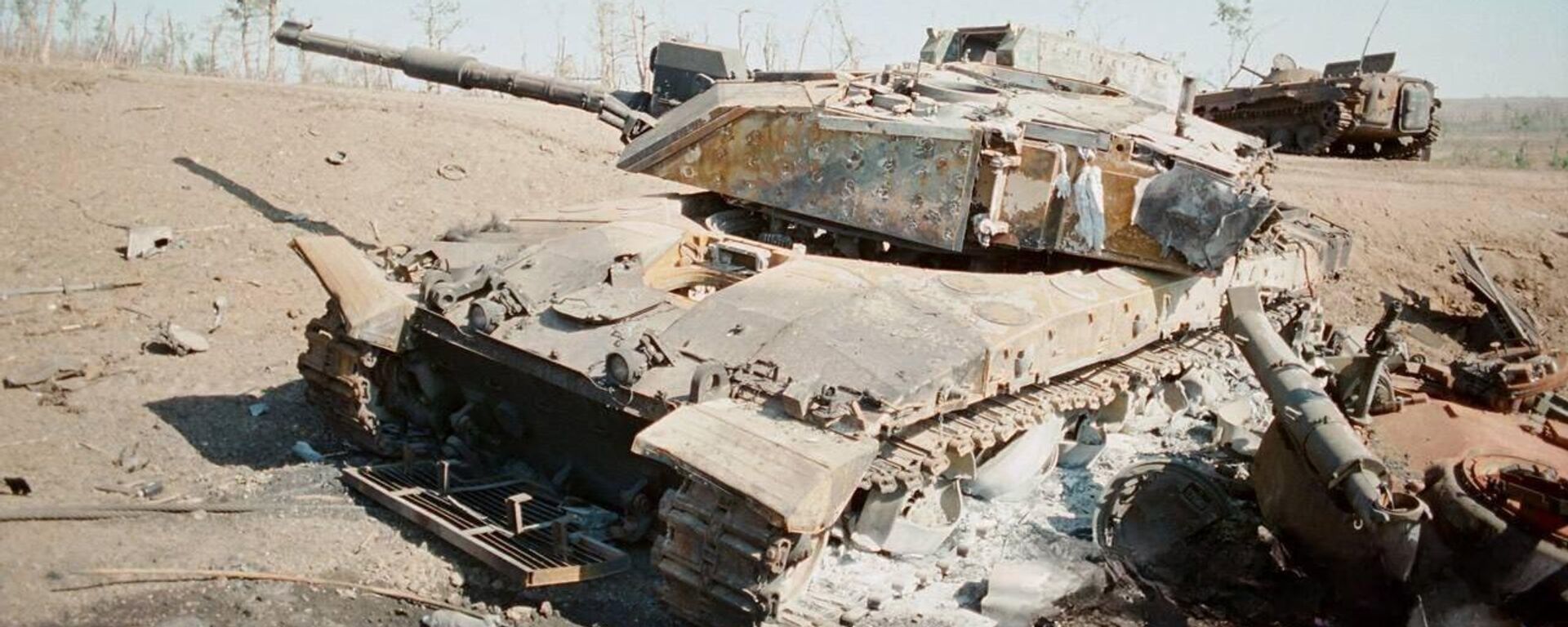
24 January 2024, 16:09 GMT
German media report that Kiev is also expecting Germany to provide it with a fourth Iris-T surface-to-air missile battery by the end of the winter and four more anti-aircraft systems by the end of 2024.
The new batch pales in comparison to earlier arms supplies from NATO. It is also unlikely to satiate Ukraine's appetite for arms and munutions, given that over the several months of its botched summer counteroffensive the nation's military forces lost 159,000 troops killed and wounded, 121 aircraft, 766 tanks, including 37 German Leopard 2s, 2,348 armored vehicles of various classes, including 50 Bradley infantry fighting vehicles, according to the Russian Ministry of Defense.
Military aid to Ukraine is flagging as NATO's weapons stockpiles have been significantly depleted since the beginning of the conflict. NATO member states are now seeking to replenish their arms depots with Western defense contractors poised to cash on on new hefty orders. NATO announced on January 3 that it would help a coalition of Allies, including Germany, the Netherlands, Romania and Spain, to buy up to 1,000 Patriot missiles, claiming urgent security needs.
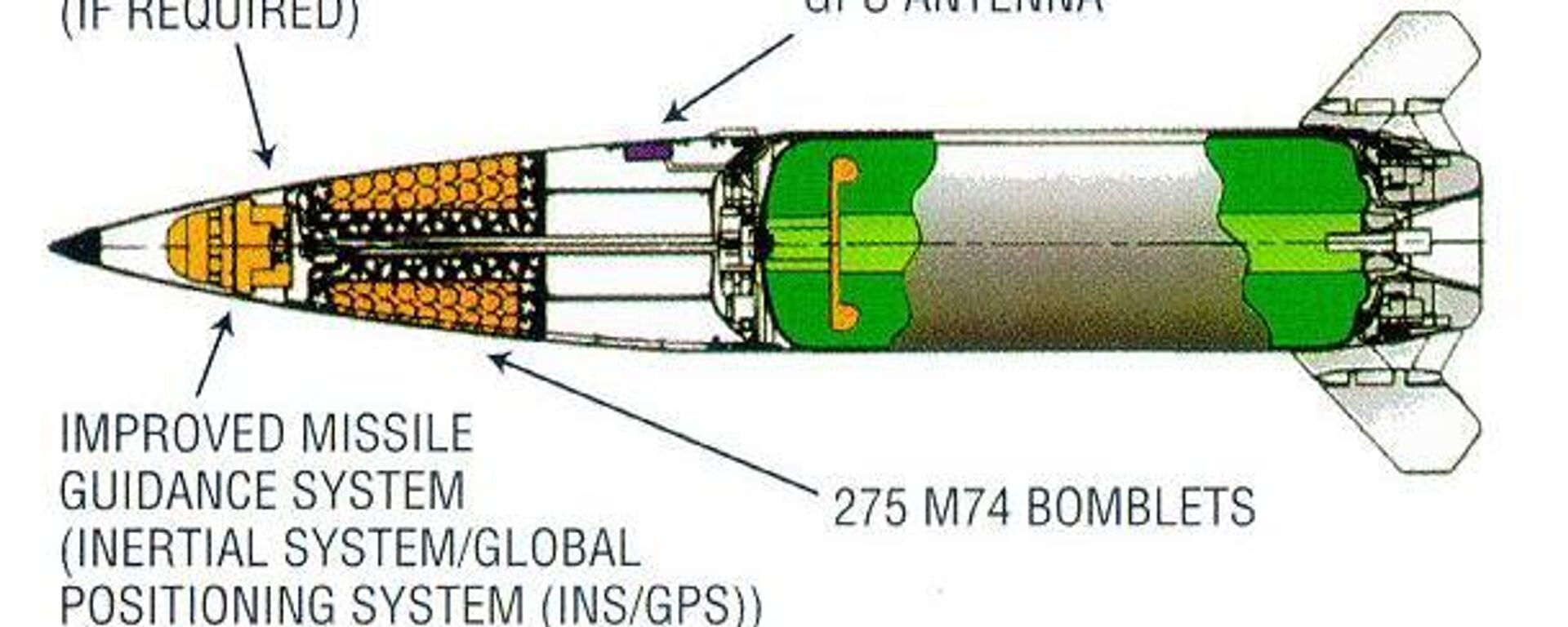
24 January 2024, 14:47 GMT
Paris has pledged to send "hundreds" of Safran Armement Air-Sol Modulaire (AASM) Hammer guided bombs for the first time as well as additional 40 MBDA SCALP EG cruise missiles.
Presently, France possesses around 1,800 AASM precision-guided munitions (PGM) and has vowed to provide 50 of those on a monthly base to Kiev. The munitions will be adapted for Ukraine's Soviet-era warplanes.
It's not clear what version of the AASM PGM would be sent to Kiev: SBU-38 (with inertial and GPS guidance), SBU-54 (with GPS-inertial and laser guidance), or SBU-64 (with GPS, inertial, and infrared guidance). The AASM offers a range exceeding 50 kilometers and includes 125, 500, and 1,000 kilogram bombs.
In addition, the French government will provide 12 more Caesar self-propelled howitzers to Ukraine, according to French Armed Forces Minister Sébastien Lecornu. Lecornu specified last Thursday that Nexter Systems, a government-owned arms manufacturer, would produce a total of 78 Caesar howitzers over the coming year, expressing the hope that other NATO states would buy them as gifts for Ukraine. The minister added that France would also be able to deliver 3,000 shells of ammunition to Ukraine per month by the end of January. But that is a drop in the ocean compared to the 3,000 shells the Ukrainian army uses every day.
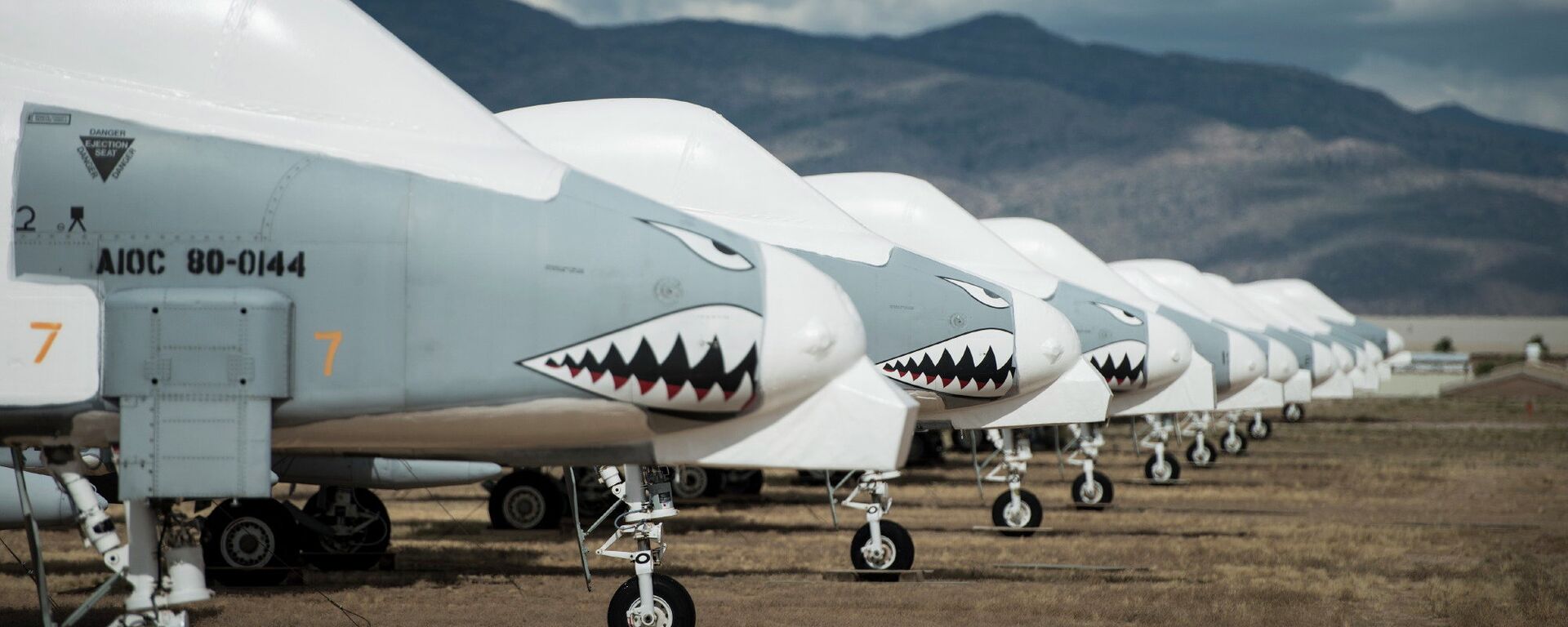
25 January 2024, 15:53 GMT
In mid-January, British Prime Minister Rishi Sunak stated that the UK will provide £2.5 billion ($3.2 billion) in military aid to Ukraine in 2024/25, an increase of £200 million ($254 million) on the previous two years.
Per the UK government website, of the £2.5 billion package, at least £200 million will be spent on "a major push to rapidly procure and produce thousands of military drones for Ukraine, including surveillance, long-range strike and sea drones."
It is also expected that London could provide Ukraine with Storm Shadow cruise missiles (also known as SCALP), air defense systems with ammunition, anti-tank weapons, artillery ammunition and maritime security systems. Turkiye has refused to allow two minesweeper ships donated to Ukraine to sail through the Turkish straits to the Black Sea.
Russian military observers say the British air defense package may include more of the Stormer HVM (High Velocity Missile), a short-range air defense system, or the Sky Saber (Land Ceptor) air defense complex, which was adopted by the UK military forces in 2020. The Land Ceptor's standard modular version has a range of 25 kilometers; the CAMM-ER modification boasts a range of 45 km. The CAMM-MR, which is still under development, could hit the target at a distance of 100 kilometers.
Given that Ukraine has turned into a
waste disposal site for obsolete NATO weapons, military observers do not rule out that Ukraine will be supplied by the decommissioned Rapier air defense systems. The British Army received the system in 1972 and in 1974 it was adopted by the Royal Air Force. These low-level air defense systems have a speed of Mach 2+ and a range of just 7 km. Reportedly, the UK currently has a total of about 600 Rapier systems and 25,000 missiles for them. Needless to say, the obsolete low-level air defense systems would be no game changer on the battlefield.
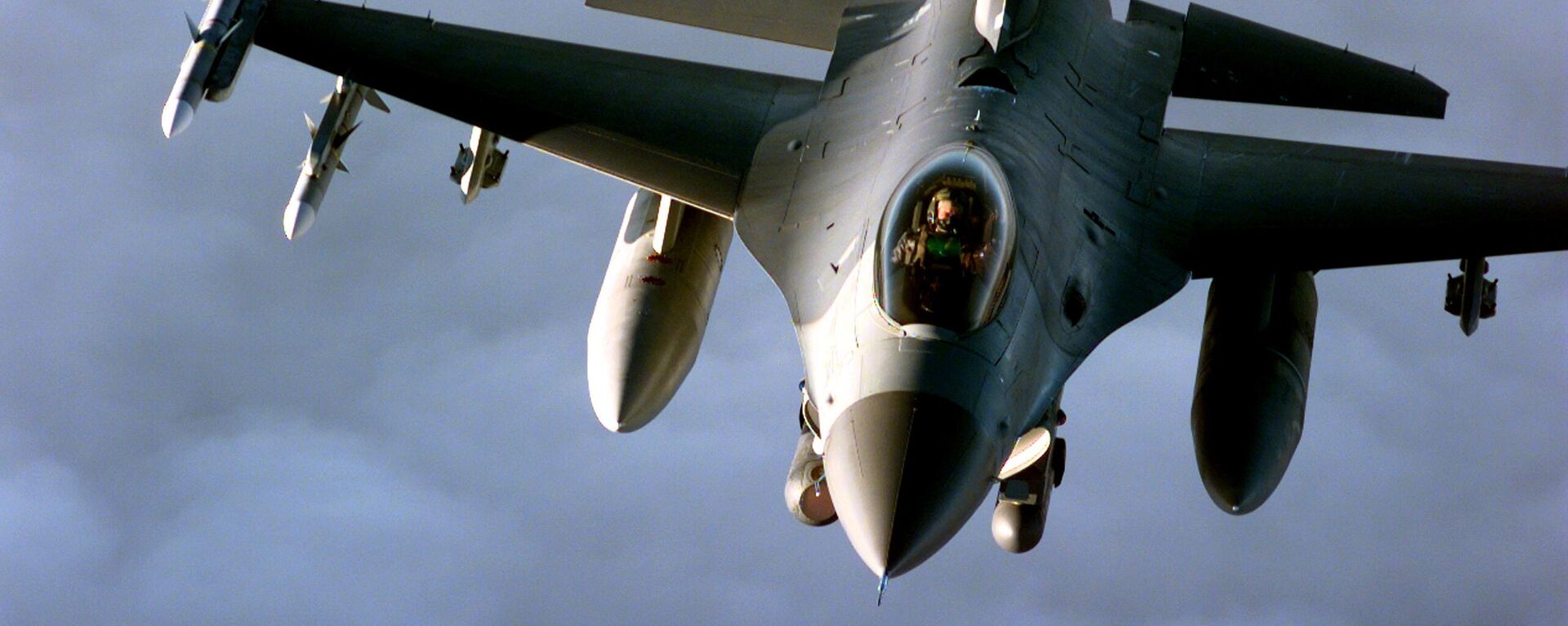
25 January 2024, 02:59 GMT
Last year Denmark vowed to transfer
19 US-made F-16 fighter jets to Ukraine in early 2024, as it is replacing its F-16 fleet with more modern F-35 jets. However, Danish newspaper Berlingske reported on January 6 that their delivery to Kiev would be delayed by up to six months.
Norway is modestly donating two F-16 fighter jets that will be used to train Ukrainian personnel in Denmark. In early January, Defence Minister Bjorn Arild Gram visited the airfield in Bodo where the aircraft was awaiting dispatch to Ukraine.
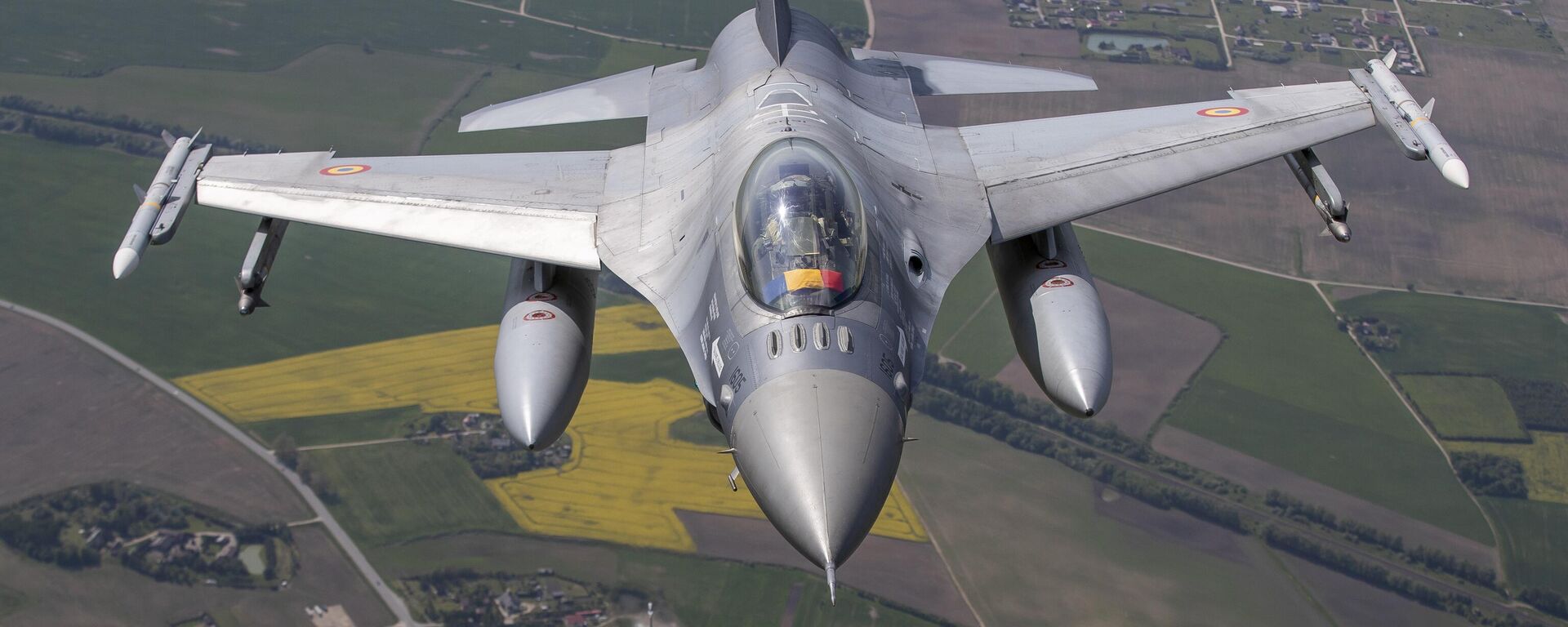
6 January 2024, 13:09 GMT
On December 22, the Dutch government signaled that it would provide 18 F-16 fighter jets to Ukraine. Given that the warplanes are far from brand new they will need to undergo inspections and modifications.
The Netherlands also specified that before the warplanes can be sent to the Ukrainian military, strict criteria must be met including licensing and infrastructure readiness in Ukraine. Military observers note the fact that almost all Ukrainian airfields have been destroyed by Russian strikes, throwing the deployment of NATO-grade aircraft in the Eastern European state into question.
Last October, US Secretary of Defense Lloyd Austin suggested that Ukraine may receive F-16 aircraft from NATO allies as early as spring 2024.
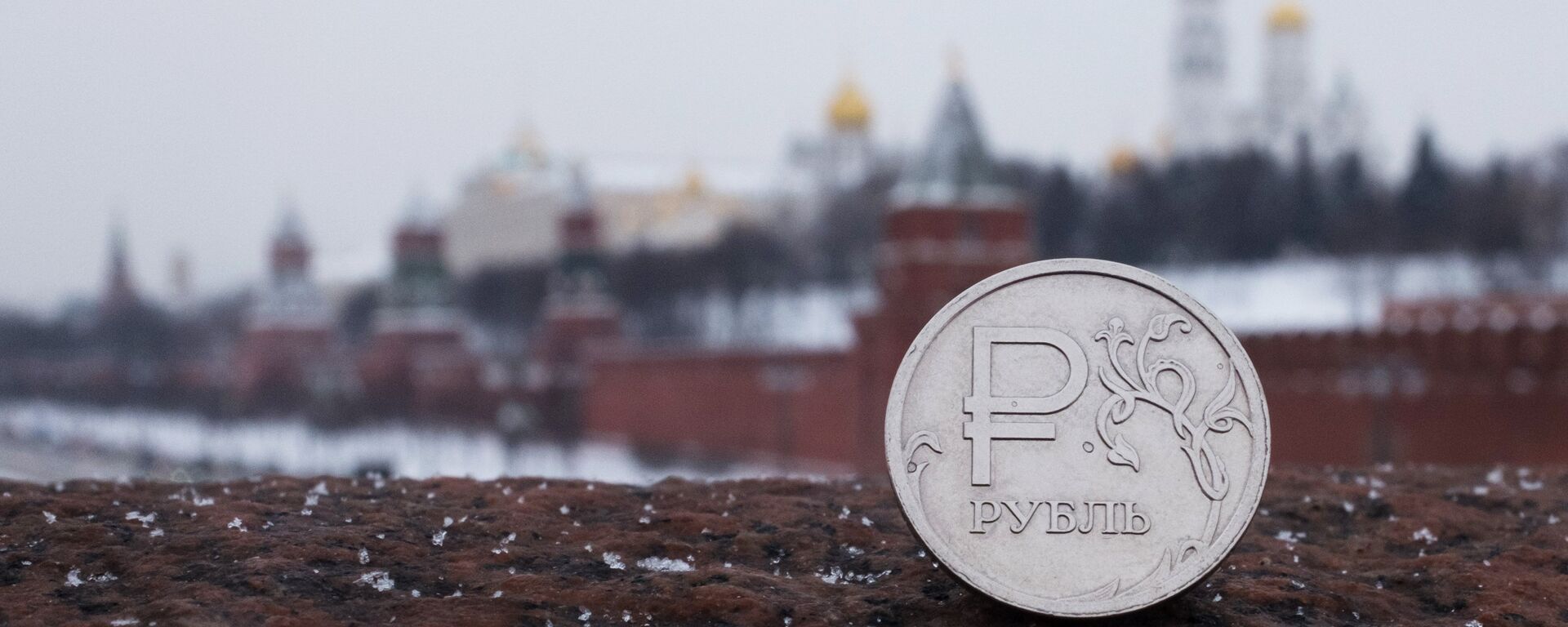
23 January 2024, 15:35 GMT
Belgium, which is also participating in NATO's "air coalition" against Russia in Ukraine, has pledged to provide Ukraine with €611 million ($662 million) in military aid, Bloomberg reported on January 22, quoting Ukrainian Defense Minister Rustem Umerov. In October, Belgium agreed to provide Ukraine with F-16s but not before 2025. It's unclear what the balance of forces on the ground will be by that time.
In December, Estonia pledged to send €80 million ($86.6 million) in military aid to Kiev. The nation, which has yet to overcome the consequences of record-high inflation rates in 2022 and looming pan-European recession, said it could allocate 0.25 percent of its gross domestic product (GDP) to military aid for Ukraine over the next four years.
Estonia's previous packages included Javelin anti-tank missile systems, artillery ammunition, anti-tank mines, anti-tank mortars, machine guns, vehicles, communications equipment and other items.
All the proposed military aid cannot help the Kiev regime win the conflict, instead it will make the NATO proxy war fester further at the expense of Ukrainian people.
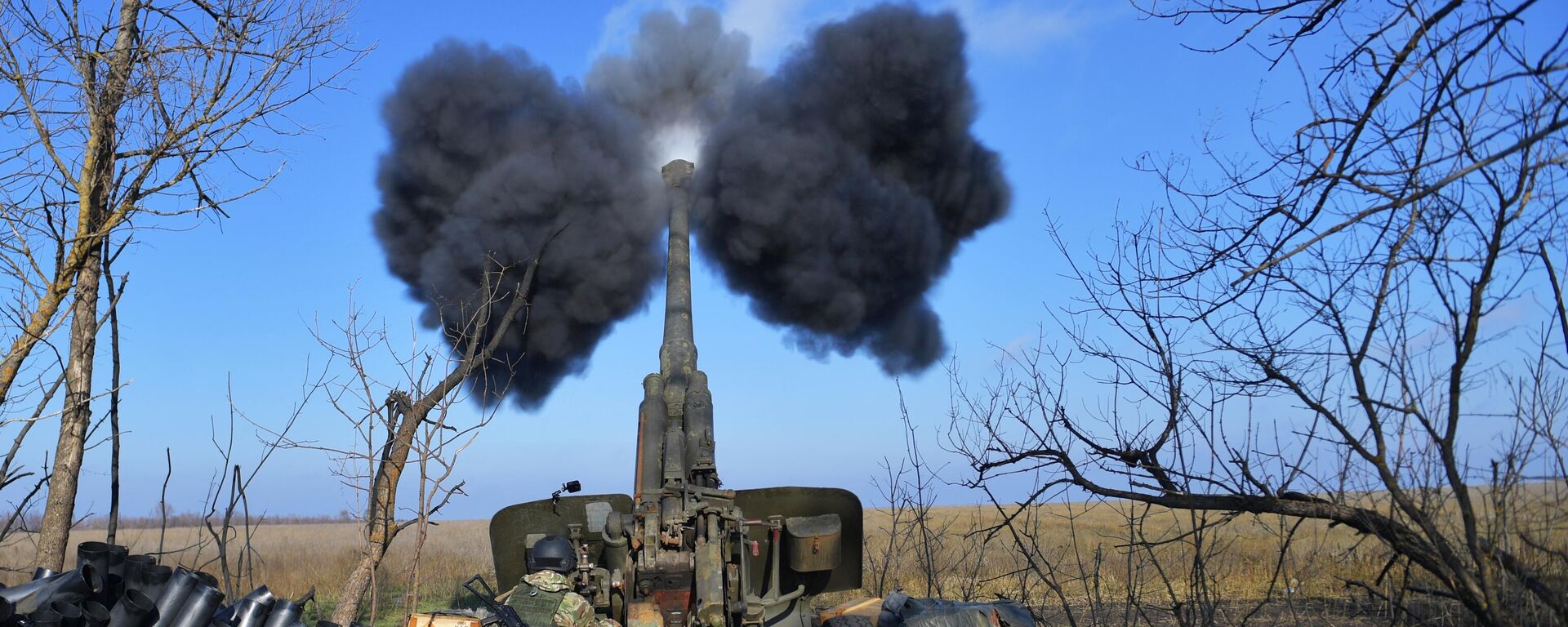
18 January 2024, 18:18 GMT





